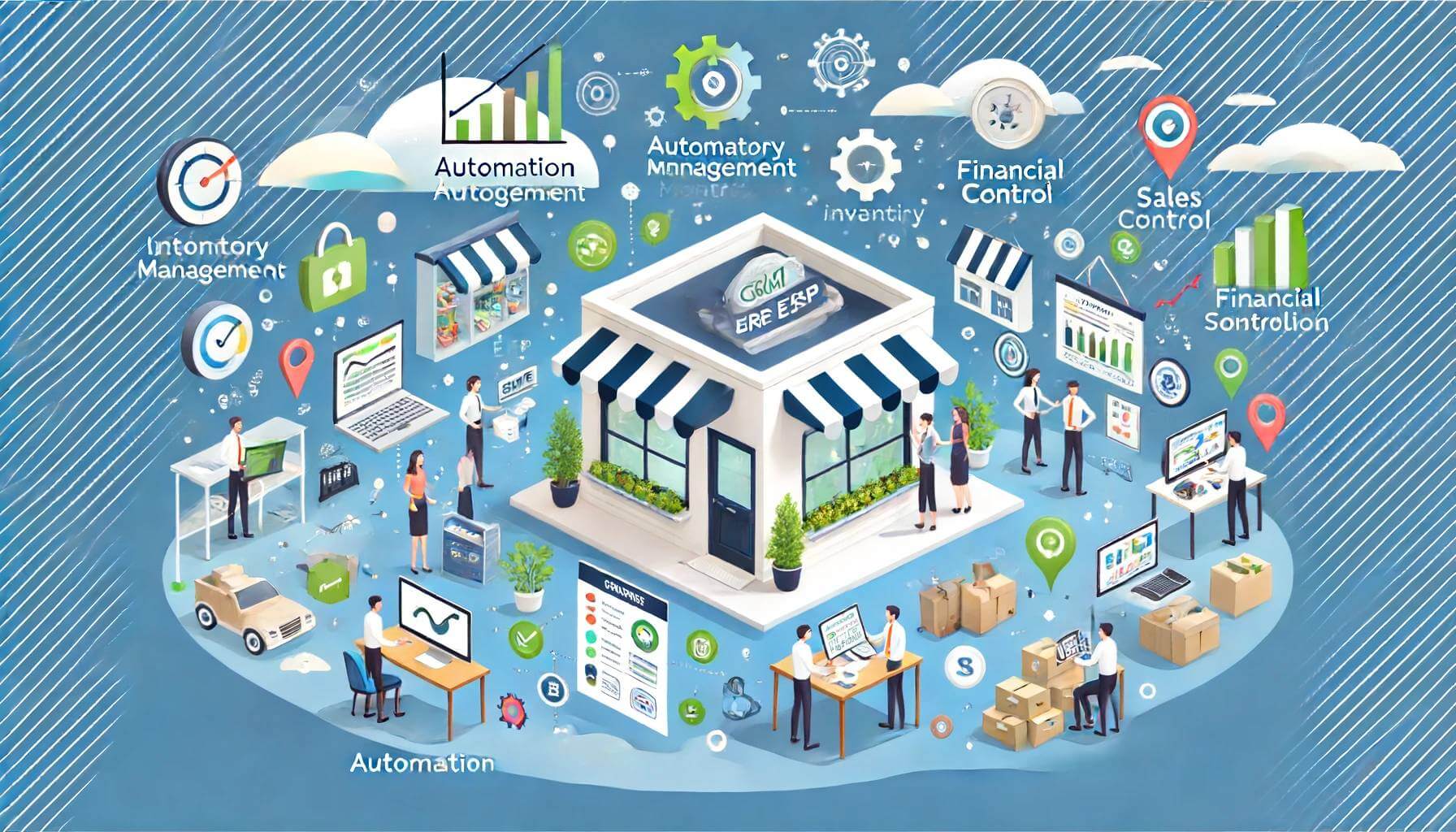↑
CRM/ERP for Small Businesses: From Fear to Benefits
Effective business management requires the integration of various processes into a single system. However, small businesses often avoid using CRM or ERP systems, preferring to keep records in external services like Google Docs, Excel, various messengers, etc. This approach creates numerous inconveniences: information is scattered across different platforms, making it difficult to control and analyze data, and thus to make important decisions.
In this article, we will explain how transitioning to a CRM-ERP system can improve the situation.
Common Tools Used by Small Businesses
To understand the benefits of using a CRM for small businesses, let's look at the common tools used in their operations and their drawbacks.
- Google Sheets and Excel for financial accounting and reporting: These are easy to use but do not provide the necessary integration and process automation, leading to data duplication and errors.
- Trello and Asana for project management: These are convenient for planning and tracking tasks but are not linked to finances or customer management.
- Telegram and WhatsApp: Popular for their convenience and quick communication, but important information is scattered across many chats and easily lost.
- Google Contacts and spreadsheets for storing customer data: The lack of a centralized repository complicates access to information and its analysis.
Fear of the Unknown: Why CRM/ERP Scares Small Entrepreneurs
Transitioning to new technologies always comes with certain challenges and fears. A CRM system for small businesses may seem complex, expensive, and unsuitable for their scale. Despite these fears, many are myths or exaggerated perceptions of the system.
CRM-ERP: Not Just Words, but Tools for Your Growth
CRM and ERP are powerful tools that can significantly contribute to the growth of your business. Modern solutions like LBS Cloud are designed with the needs of small enterprises in mind, are affordable and easy to implement and configure, provide the necessary support, and can be tailored to the specifics of any business.

Advantages of Implementing CRM-ERP Systems for Small Businesses
How does this manifest?
· Centralized data facilitates access, management, and analysis of information
· Personalized customer interaction improves their experience and satisfaction
· Automation of routine processes increases work efficiency and reduces the risk of errors
· Real-time reporting helps make informed decisions quickly
· Integration of all business processes promotes smooth employee collaboration, increases productivity, and achieves strategic goals
How to Avoid Mistakes When Choosing CRM-ERP
When selecting a CRM-ERP system, it is important to avoid common mistakes that can lead to the system not meeting the business's needs, such as:
1. Inadequate research into the company's needs and the system's functionality
2. Ignoring the possibilities of integration with existing systems
3. Choosing a system without considering the scale and growth of the business
How to Choose the Right CRM-ERP System for Your Business
When choosing a CRM-ERP system for your business, consider these key tips:
1) Assess the business's needs and identify the main processes that require automation and integration;
2) Ensure the system offers the necessary features and can adapt to your requirements;
3) Choose a system that will grow with your business;
4) Compare the costs of implementation and maintenance of different systems, selecting the best price-quality ratio;
5) Evaluate the technical support.
The proper selection of CRM-ERP systems for startups or small businesses will help optimize routine processes and ensure the long-term growth of your business. The advantages of centralized management of business processes, improved productivity, and efficiency offered by LBS Cloud will help your business grow and develop. A pleasant feature of the system is its pricing: the full functionality of the system is available without additional fees, with payment based solely on the number of active users.